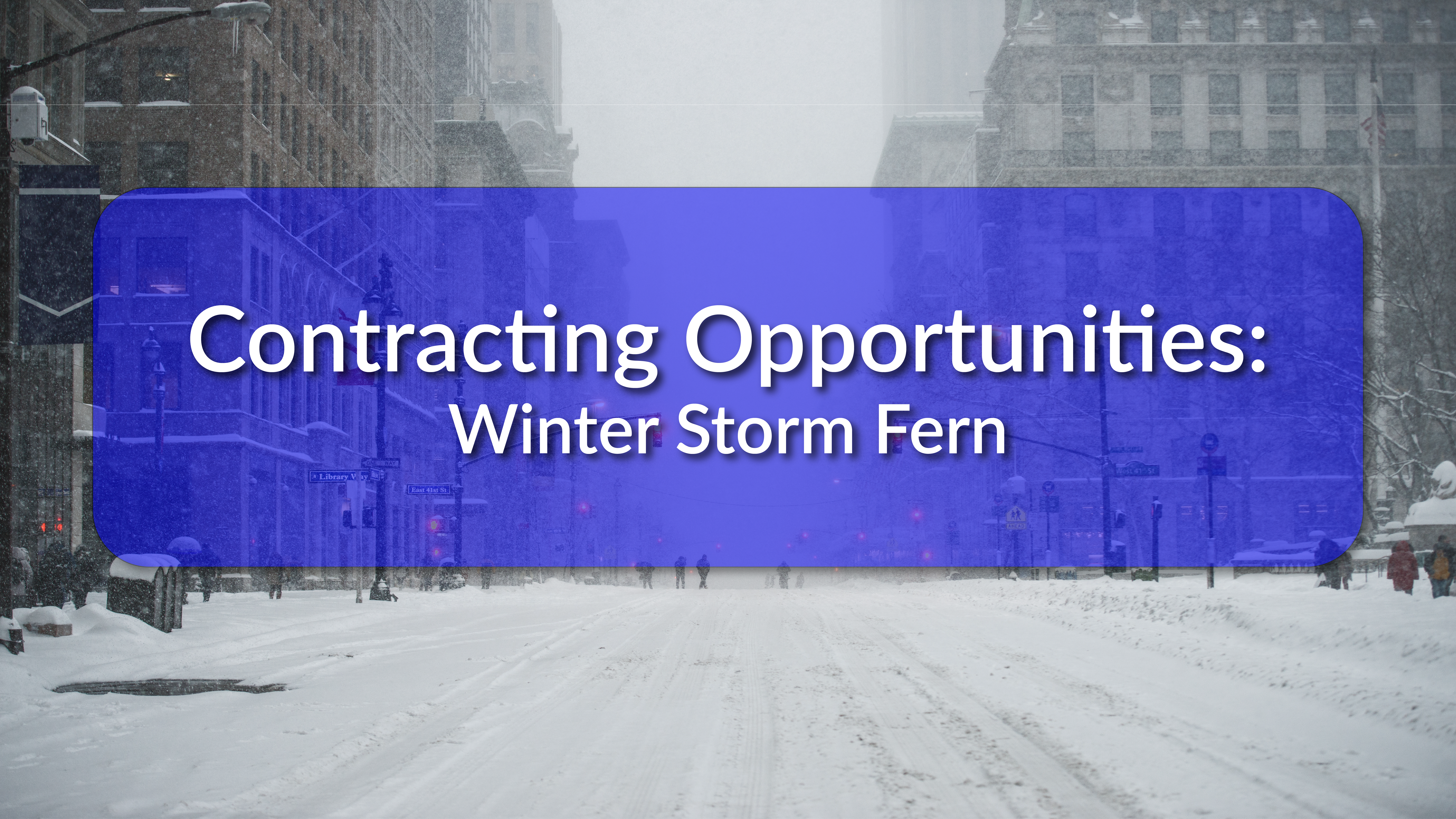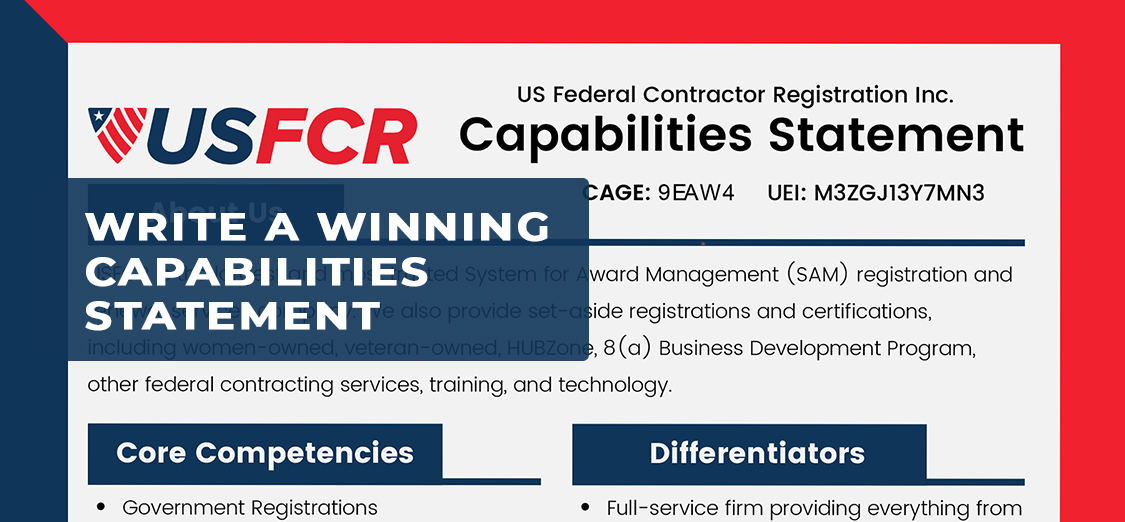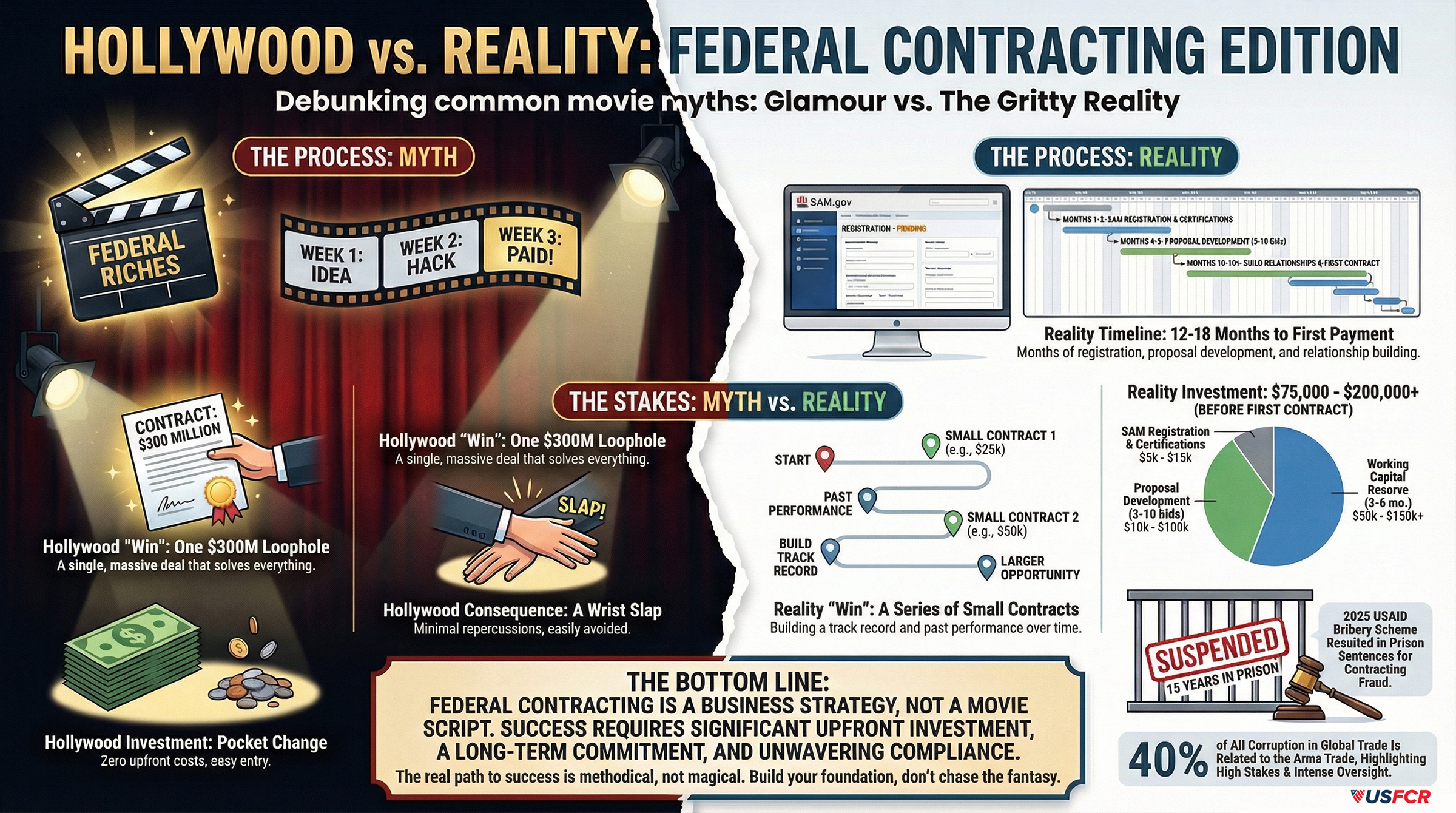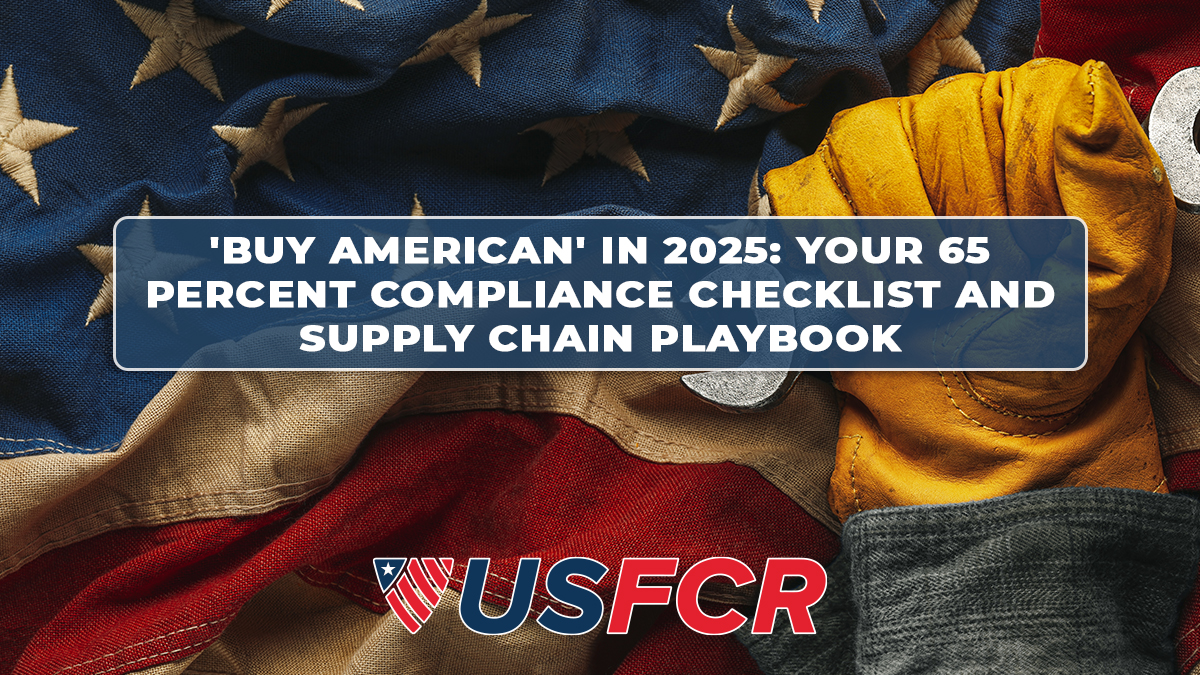SAM is active. Now the real decisions start
Beyond SAM Registration: Defining Success in Federal Contracting
Jan 27, 2026 12:02:37 PM / by Kyle Hayes posted in Simplified Acquisition Program (SAP), Guides, Subcontracting & Teaming
Contracting Opportunities From Winter Storm Fern (January 2026)
Jan 26, 2026 12:37:24 PM / by Kyle Hayes posted in Guides, News, Disaster Relief
Winter Storm Fern isn’t just a weather story. It’s a continuity-of-operations mission.
This is your guide to unlocking a wider range of opportunities and increasing your cash flow from federal contracting.
After reading this, you’ll have everything you need to write a winning capabilities statement.
Let’s go.
2026 8(a) Compliance Update: What Changed and What to Fix
Jan 23, 2026 12:11:12 PM / by Kyle Hayes posted in Guides, Set-asides
8(a) status can open doors. It can also create delays if your documents and planning aren’t solid.
SAM Registration Is Free—But Getting Stuck Isn't
Jan 21, 2026 2:31:42 PM / by Kyle Hayes posted in Guides
You watched War Dogs. Or maybe Lord of War. Or you caught The Pentagon Wars on a late-night streaming binge. Now you think you understand federal contracting.
Here's the problem: Hollywood has been telling stories about government contracts, arms deals, and defense procurement for decades. Some of it is surprisingly accurate. Most of it will get you arrested, bankrupt, or both if you try to replicate it.
Federal contracting isn't about finding loopholes, bribing officials, or stumbling into million-dollar deals through dumb luck. It's about systematic capability building, compliance infrastructure, and strategic positioning. But you wouldn't know that from watching movies.
Let me walk you through what Hollywood gets right, what it gets catastrophically wrong, and what federal contracting actually looks like in 2025.
17 Federal Contract Types Explained: How Each Impacts Risk, Pricing, and Profit
Oct 23, 2025 8:15:00 AM / by Mike Goetz posted in USFCR Academy, Guides, News
Government contracts come in various forms, each designed to fit specific needs. Whether you're new to federal contracting or an experienced supplier, knowing the differences between contract types is crucial for success in this complex industry. In this guide, we break down the most common types of government contracts and how they might impact your business.
Firm-Fixed-Price Contracts (Learn more)
Firm-fixed-price contracts are the most widely used in government procurement. In this type of contract, the contractor agrees to deliver goods or services for a set price, regardless of actual costs. It’s often used when the project scope is well-defined and the risk of cost overruns is minimal.
Why It's Used: Fixed-price contracts offer predictability for both parties, making them ideal for projects with clear deliverables.
\n \"Whether you're new to federal contracting or an experienced supplier, knowing the differences between contract types is crucial for success in this complex industry.\"\n
\n \n Share on 𝕏\n \n
Prime Time for Subcontractors: Mastering the Q4 Teaming Window
Jul 21, 2025 10:00:00 AM / by USFCR posted in Guides, Subcontracting & Teaming
Many prime contractors begin identifying teaming partners in July. This timing aligns with Q4 contract deadlines, which peak before the federal fiscal year ends on September 30. August is when capability statements are reviewed, teaming discussions happen, and decisions get made.
USFCR Highlighting Military Appreciation Month
May 1, 2025 7:00:00 AM / by Mari Crocitto posted in Guides, News, Hot Grants
The month of May highlights Military Appreciation Month, which plays a crucial role in fostering an awareness and understanding of the challenges service members, veterans, and their families face. [1] Military Appreciation Month celebrates a few of the following observance days:
'Buy American' in 2025: Your 65% Compliance Checklist and Supply Chain Playbook.
Apr 23, 2025 1:16:53 PM / by USFCR posted in Guides, Federal Spending
The federal government is raising the bar again. Starting in 2025, all manufactured products and construction materials used in federally funded projects must meet a 65 percent domestic content requirement under the Buy American Act. This rule runs through 2028 and rises to 75 percent in 2029. If you're not auditing your supply chain now, you're risking more than a missed bid; you could be disqualified before you even get started.



Featured.png)



.jpg)


